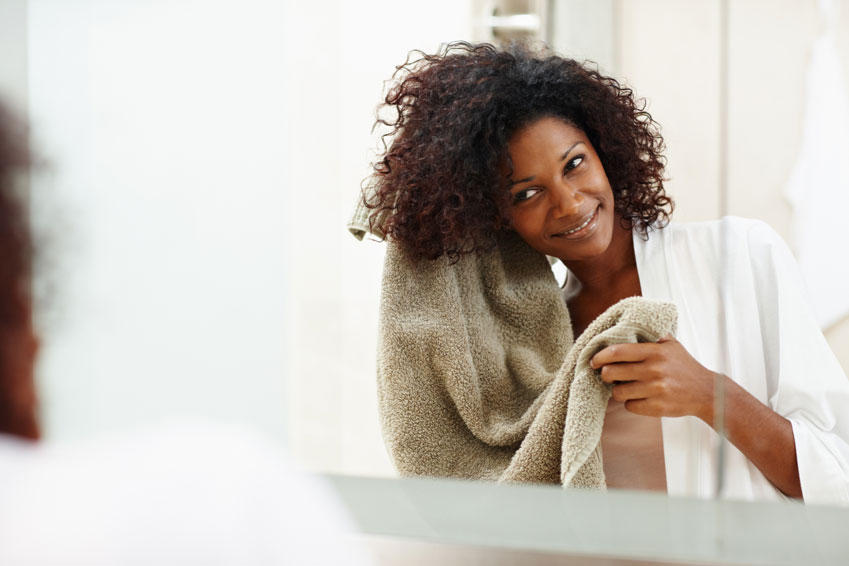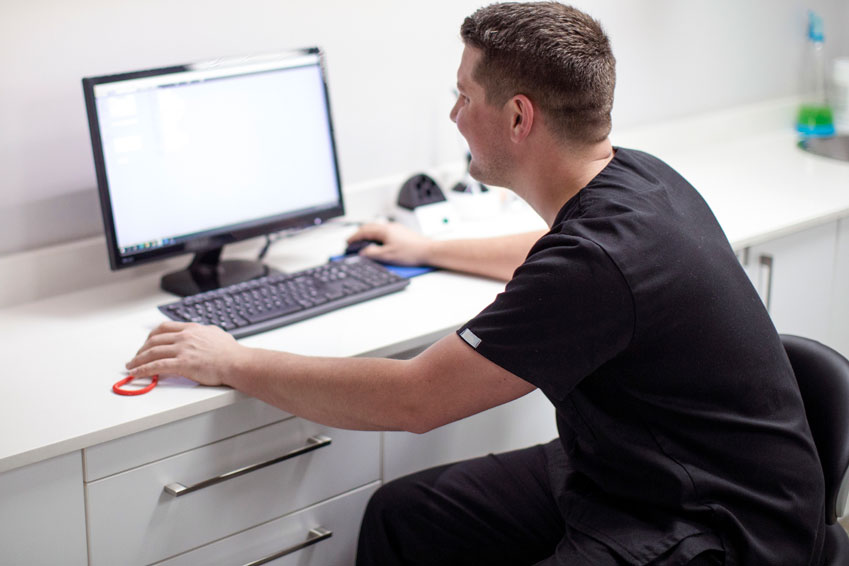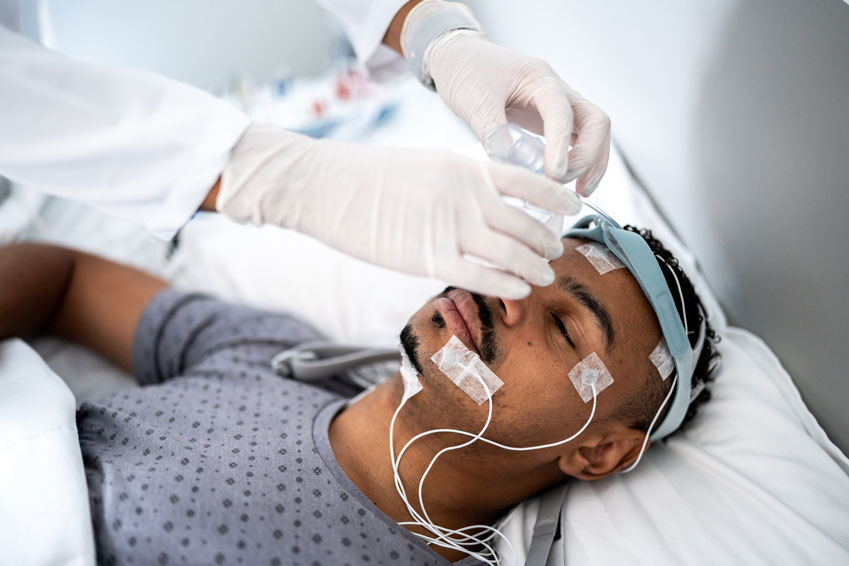Poor sleep can leave a scar on your lifestyle, your family — even your health.
You can often resolve insomnia and other sleep problems through lifestyle changes — improving your sleep environment, establishing a firm bedtime routine, eliminating caffeine, etc. If these don’t work, you may try over-the-counter or prescription medications.
However, if you are still having problems falling asleep, staying asleep, or feeling tired no matter how much sleep you get, your dentist or doctor may refer you for a procedure known as a sleep study.
What Happens in a Sleep Study?
In a sleep study, you will go to a special facility and sleep there overnight, while technicians record and monitor your sleep. You will have a private room to sleep in, with its own bathroom. Shower facilities may be available so that you can go directly to work the next morning.
The facility will schedule you for an arrival time in the evening, generally a few hours before your normal bedtime. You will check in, have a preliminary examination to collect basic data like blood pressure and temperature, and answer questions about your sleep patterns and habits in an interview or written questionnaire.
Most sleep study centers schedule your arrival so that you will have time to settle in and relax in the room before it’s time to prepare for bed. As your bedtime approaches, you will go through your normal routine. You should bring 2-piece pajamas to sleep in to make it easier to attach monitoring equipment.
Once you are ready for bed, technicians will attach the monitors. Sensors are usually placed on your head, chest, and legs using adhesive patches or pads. You will also have a pulse-ox monitor on one of your fingertips. These sensors will have wires attached to recording equipment, but they are long enough so that you can move about while you sleep.
The monitors capture data about you as you sleep, including …
- Brain wave patterns
- Eye movements
- Heart rate
- Breathing patterns
- Limb movement
… and other information that will help your doctors evaluate the quantity and quality of sleep and observe any problems like apnea or unusual amounts of movement. A low-light camera and microphones will also record audio and video of your sleep.
After the equipment is ready, you can do the things you would normally do to settle down to sleep, such as read or listen to music. Then, you go to sleep as you would at home. With the monitoring equipment and the unfamiliar location, it is common not to sleep particularly well at the facility, but the doctors will still get enough information to evaluate your case effectively. In some cases, you may not have to spend a full night at the facility, or you may be able to come in during the daytime if you normally work night shifts.
How to Prepare for a Sleep Study

On the day of the sleep study, you should plan to keep your normal routine for the most part. You should avoid napping during the day, and not have any caffeine after noon. If you normally use hair products like gel or conditioner, you should shower and wash your hair before going to the facility, since products in your hair can make it hard to attach the sensors correctly.
The specific sleep center will give you a list of what to bring with you, but it will probably include …
- 2-piece pajamas
- Personal hygiene items like toothbrush, toothpaste, hair brush, etc. that you will need to use before bed or when you get up in the morning.
- All medications that you normally take. If you take a sleep medication, the facility will advise whether you should plan to take it that day.
- An airflow device like a C-PAP if you use it.
- Reading material, electronic device with headphones or any other entertainment you usually enjoy at bedtime.
- Clothing to change into in the morning.
- Shampoo, soap, etc. if you plan to shower. The facility will provide towels.
Check with the facility of you would like to bring your own pillow, weighted blanket, etc.
After Your Sleep Study

After your night’s sleep, the sleep specialist will review and analyze the data, and send the results to your doctor or dentist. The results will show how you fall sleep, how long it takes you to fall into deep sleep, your normal sleeping cycles, and what disturbs or awakens you during the night.
With this information, your doctor can determine whether you have a sleep disorder, what kind of disorder you have, and how to treat it going forward.
Before proceeding, you should check with your health insurance to find out if it is covered fully or partially. Some insurers consider it an elective procedure even if your primary physician has recommended it.
If your doctor or dentist refers you for a sleep study, don’t put it off! It may seem weird or even scary, but the actual process is not difficult at all, and it’s completely painless. The information gained from a sleep study can be life-changing, and in some cases, even life-saving.
The Bottom Line On Sleep

If you or someone close to you detects that you have trouble sleeping, it is well worth your while to find the cause and correct it! We can help you find a solution to help bring you back to normal. Contact us soon!

